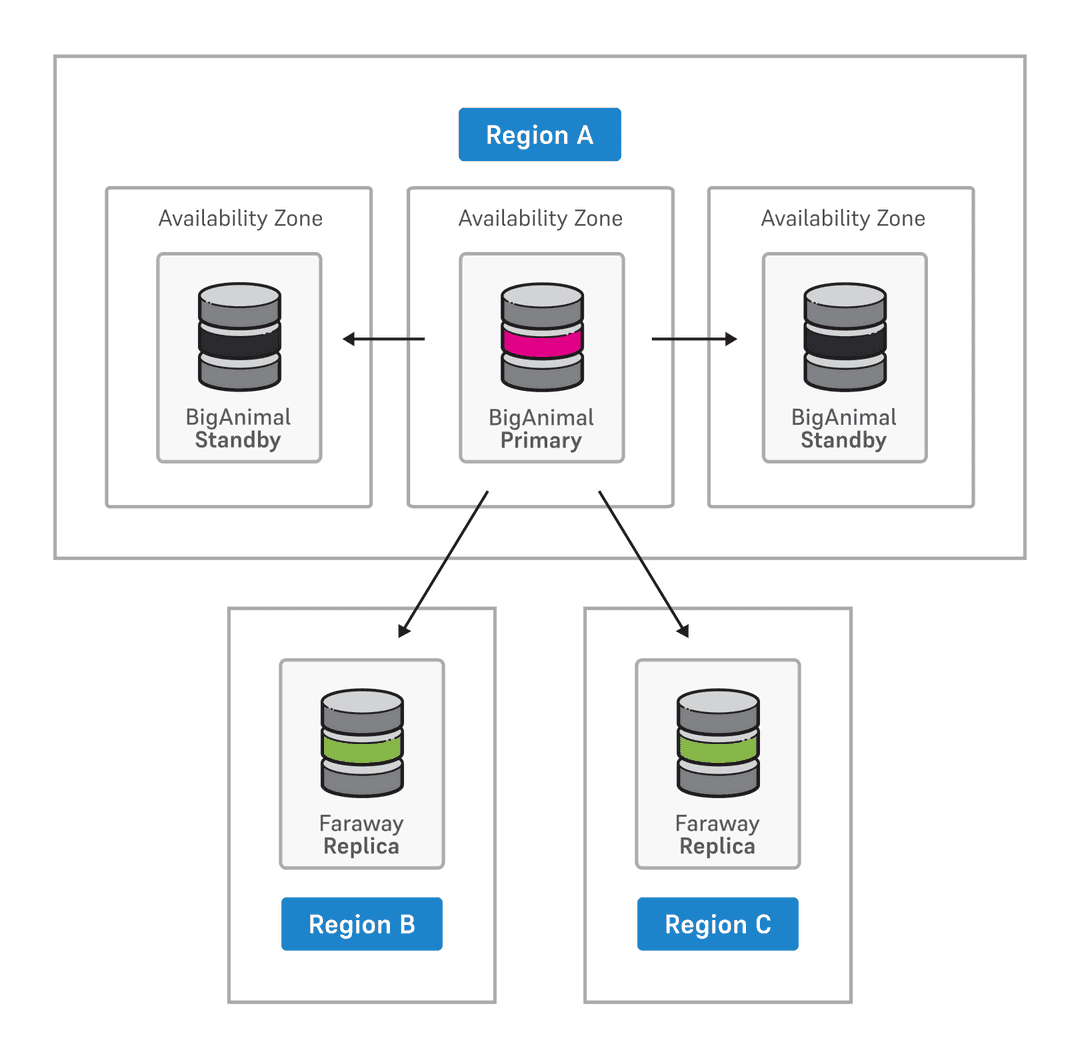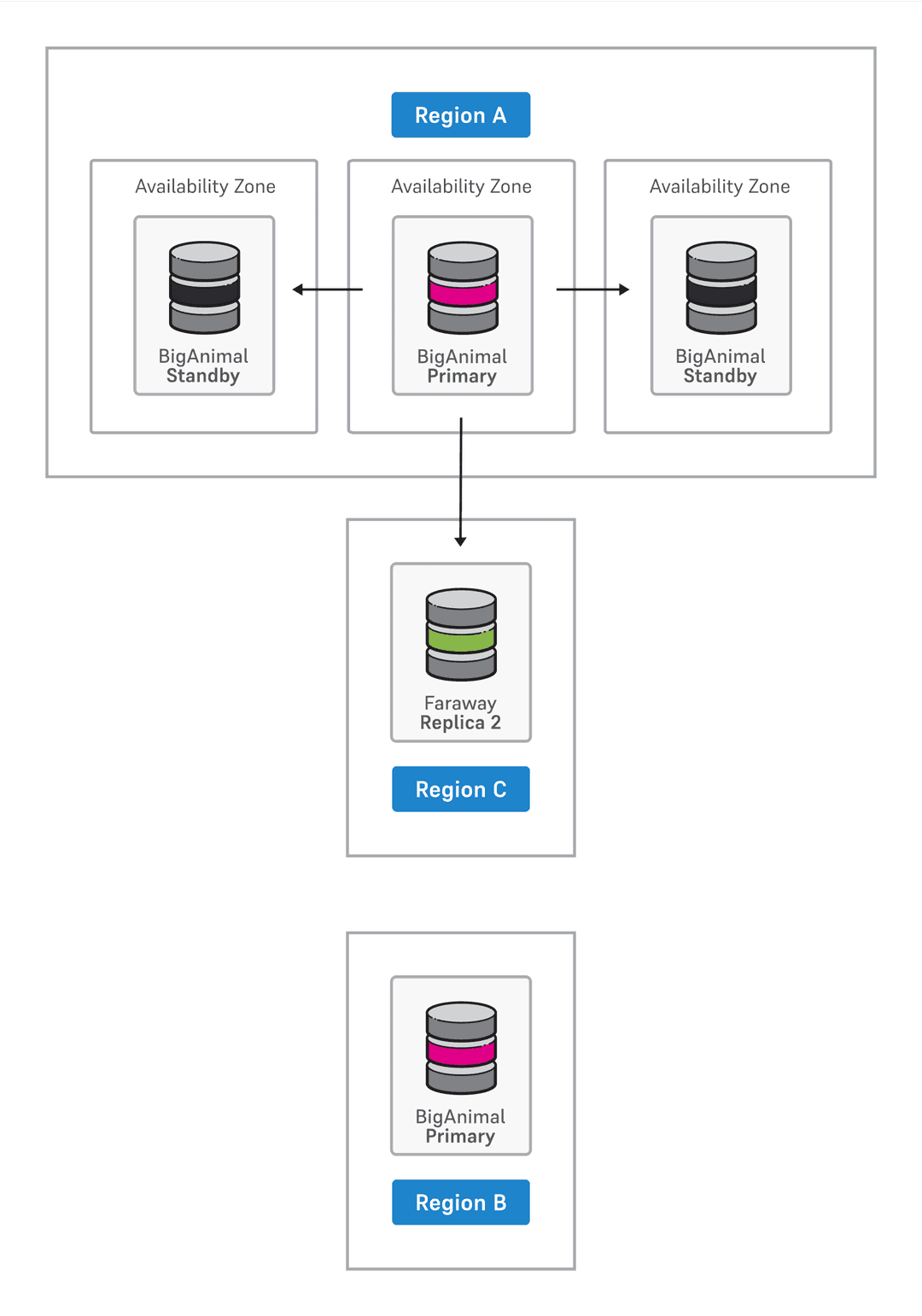Faraway replicas
Faraway replicas are read-only replicas of BigAnimal clusters that you can provision in most supported regions. You can create faraway replicas of your single-node and high-availability clusters in different regions of your cloud. Database users and applications can read from a nearby faraway replica instead of the source cluster. This ability relieves some of the workload on the source cluster and frees it up to handle write traffic.
In case of a failure, you can manually promote the faraway replica to a full-fledged BigAnimal cluster, making it capable of accepting writes. See Managing replicas.
In BigAnimal, faraway replicas use log shipping to replicate from their source clusters. This means that a replica cluster accesses the write-ahead log (WAL) of its source cluster and “replays” the changes described in it.
A WAL is a file that logs any changes made to a database. Databases write the change to the WAL before actually making the change. This way, if the database goes down before the change can be applied, the WAL has a record of the intended changes. The replica pulls in the changes from the WAL every time a new WAL file is closed, so replication is asynchronous.
Faraway replicas are priced the same as single-node clusters.
Advantages
Disaster recovery — You can create faraway replicas in different regions in your cloud. Deploying faraway replicas across regions can help you build a more solid disaster recovery (DR) plan.
Improved read-query performance — For an improved read-query performance, set up the faraway replica in the same region as your application. For example, applications can read the writes made to a cluster in the
us-eastregion from aus-westreplica.Flexibility — Options you might not find anywhere else:
- Your choice of instance type and size
- Your choice of storage volume and properties
- No limit to the number of replicas you can create
Limitations
Manual intervention — Unlike standby replicas, BigAnimal doesn't automatically promote faraway replicas to the source cluster in case of a failure.
Replication lag — Promoting a faraway replica to a BigAnimal cluster can result in loss of data. See Replication lag with faraway replicas.
Examples
The diagram shows a three-node, high-availability cluster with two faraway replicas.

The diagram shows a faraway replica in Region B that's promoted to a new cluster.

Related topics
- On this page
- Advantages
- Limitations
- Examples
- Related topics